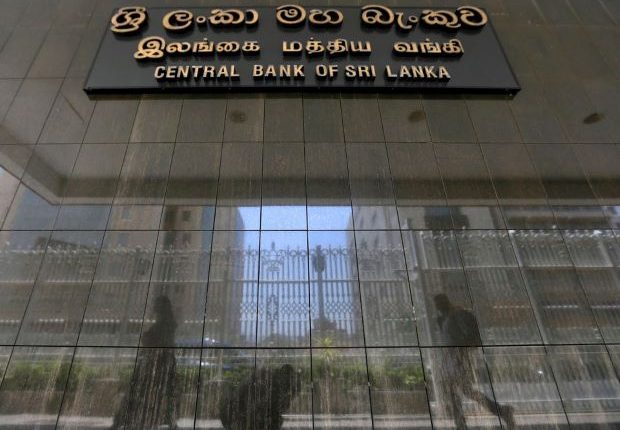Sri Lanka central bank to hold rates as inflation worries persist

By Uditha Jayasinghe
COLOMBO – Sri Lanka’s central bank is likely to maintain interest rates on Thursday (6) in an effort to get a grip on inflation which has remained stubbornly high despite a sharp contraction in the crisis-hit economy.
Nine out of 14 economists and analysts polled by Reuters said they expect rates to remain unchanged as the Central Bank of Sri Lanka (CBSL) waits for the effects of its earlier hikes to filter through to the economy and for inflation to stabilize as the economy cools.
“The pace of inflation appears to be slowing but it is also largely cost push inflation caused by depreciation and global commodity prices, which a rate hike would have limited impact on,” said Dimantha Mathew, head of research for Colombo-based investment firm First Capital.
The CBSL has raised rates by a record 950 basis points this year to battle high inflation which is adding to the country’s economic woes.
However, inflation has remained high, hitting a record peak of 68.9% in September with food inflation climbing to 93.7%.
Sri Lanka’s economy shrank 8.4% in the quarter through June from a year ago in one of the steepest declines seen in a three-month period, amid fertilizer and fuel shortages. The central bank predicts a 8.7% contraction in the economy for 2022.
An acute dollar shortage has left Sri Lanka grappling with its worst financial crisis in seven decades and struggling to pay for essential imports of food, fuel and medicine.
Holding rates at current levels will also help ensure demand does not push up imports, which Sri Lanka would struggle to pay for given the low foreign reserves, said Mathew.
The monetary authority held rates in its last policy announcement on August 18.
The standing deposit facility rate and standing lending facility rate stand at 14.50% and 15.50%, respectively.
Sri Lanka entered into a staff-level agreement with the International Monetary Fund (IMF) for a $2.9 billion bailout last month but has to figure out how to restructure its heavy debt load before funds can be disbursed.
-Reuters


Comments are closed, but trackbacks and pingbacks are open.